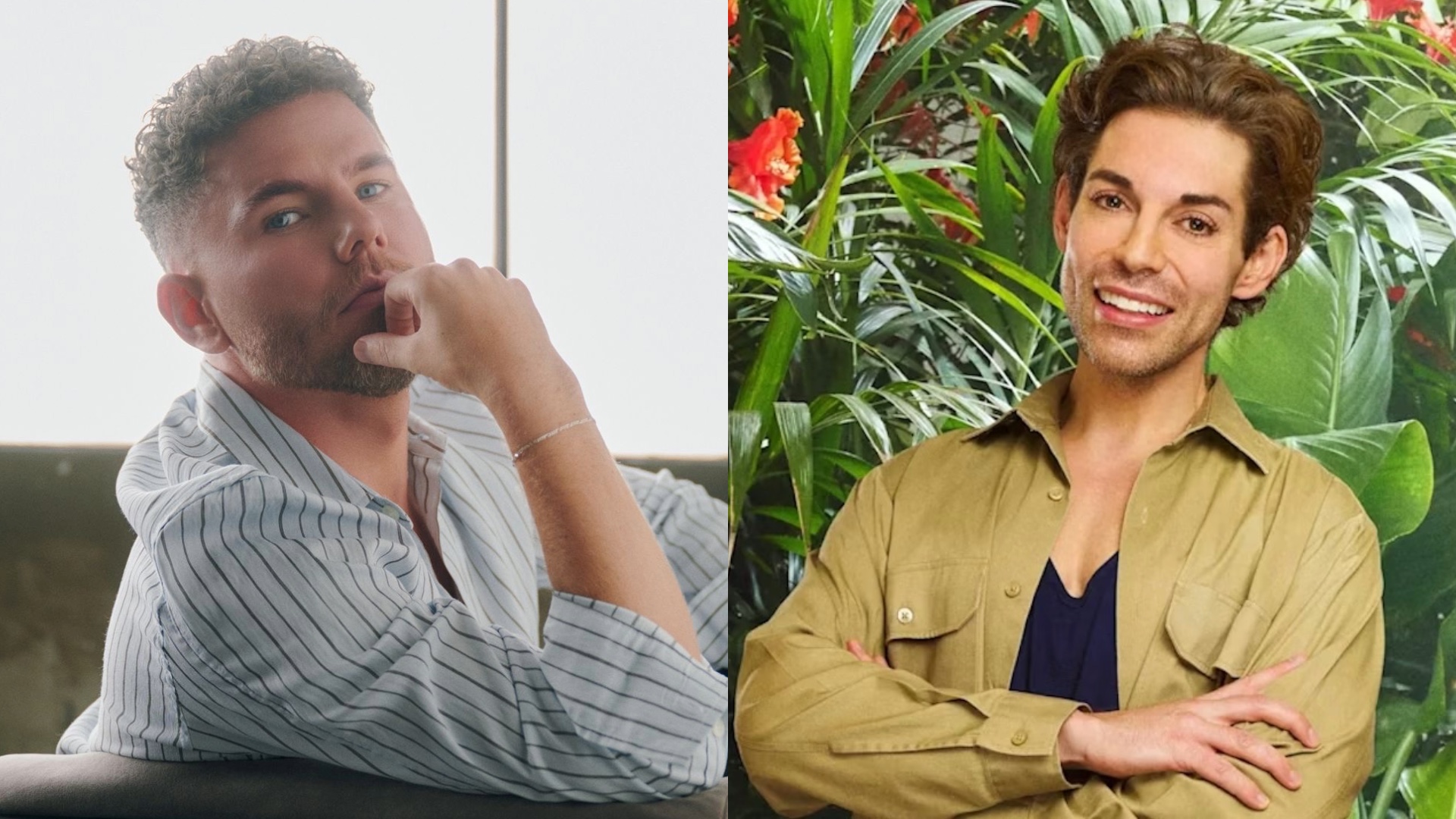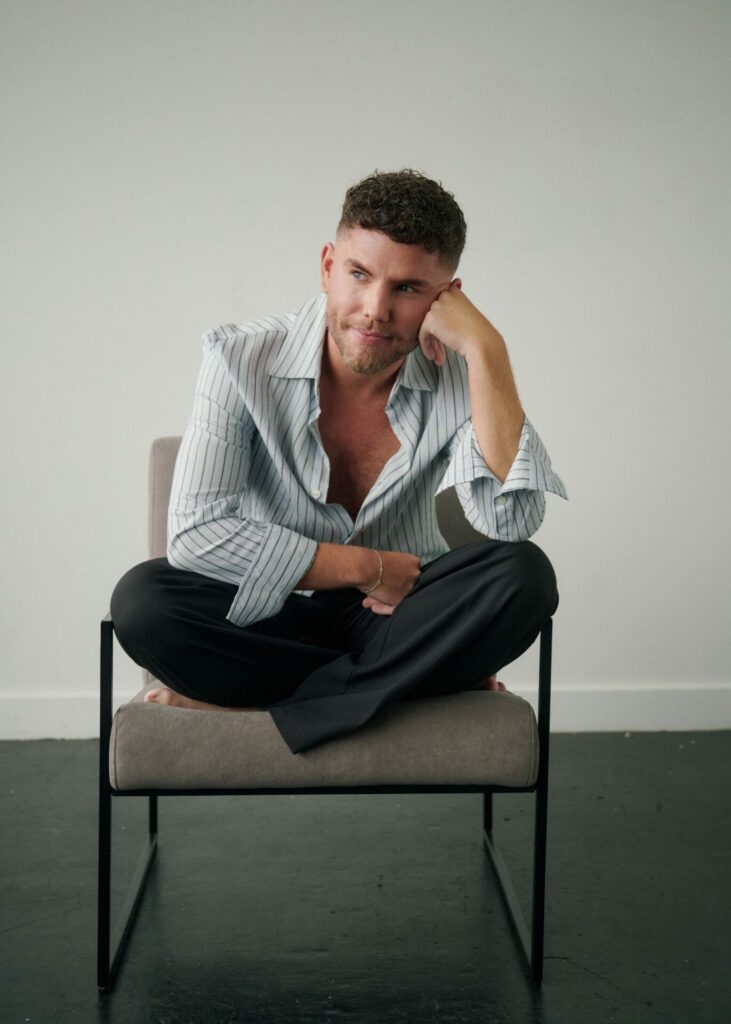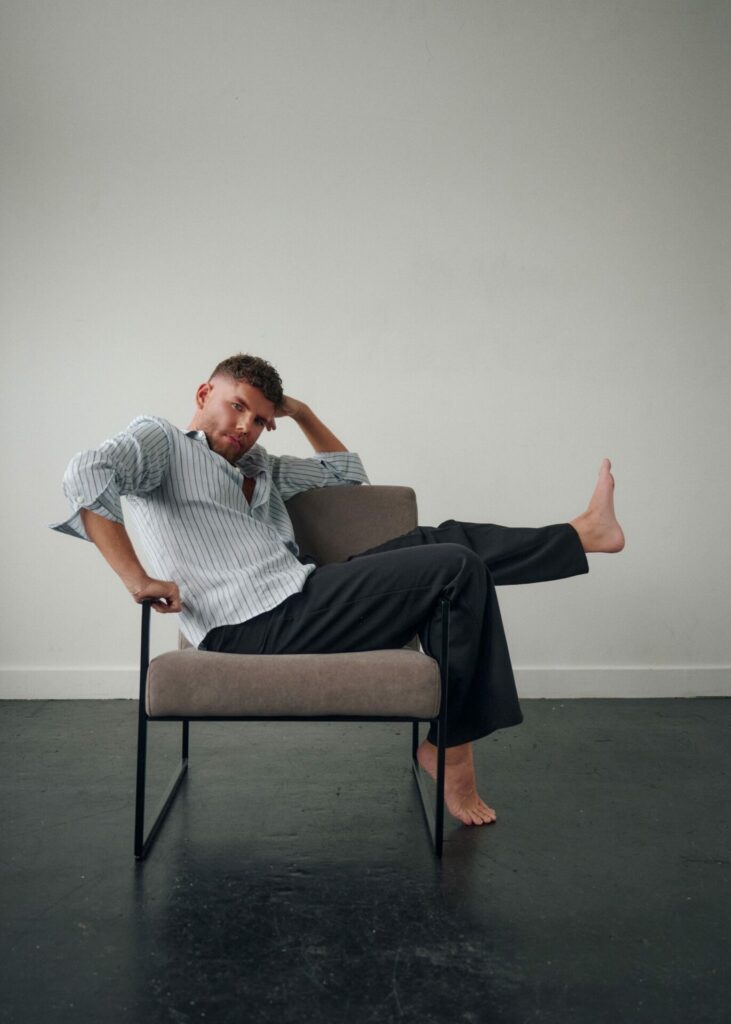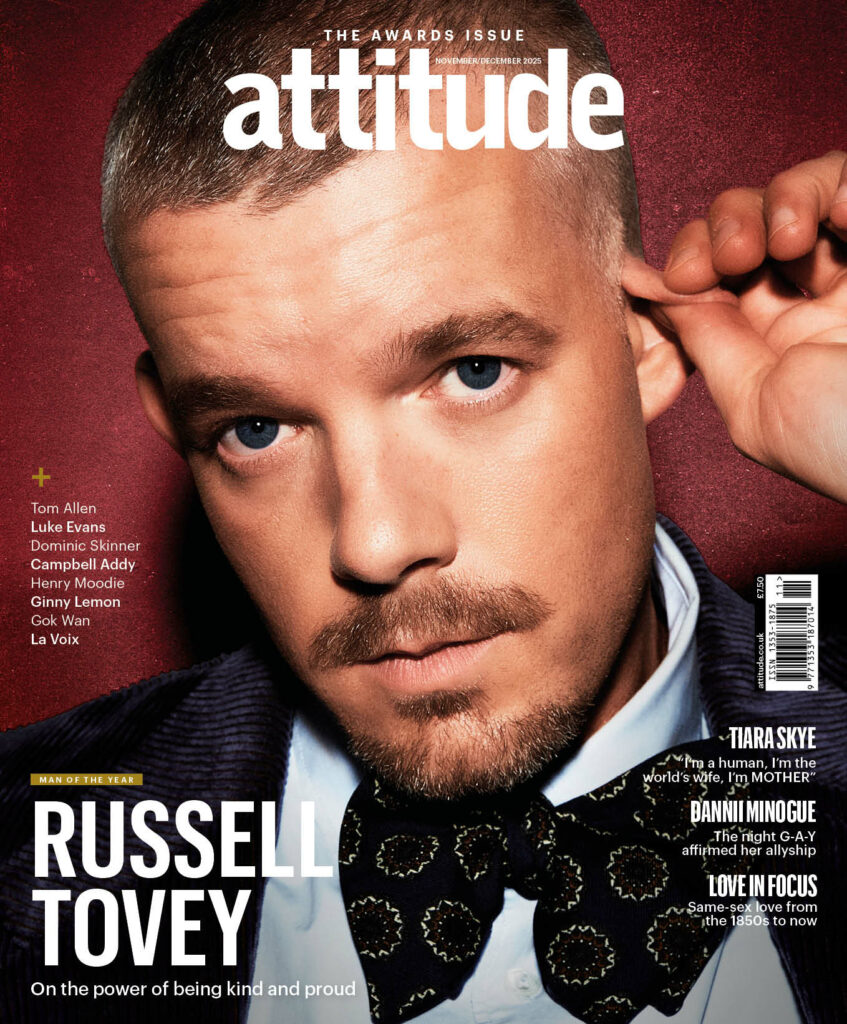Dean McCullough: ‘Tom Read Wilson’s I’m A Celeb trolling is blatant homophobia – mine got so violent, I brought in a private investigator’ (EXCLUSIVE)
Opinion: "Queer people on TV are characters to be judged, dissected, mocked, or assigned motives they don’t have," McCullough writes for Attitude

If you’d told 14-year-old me that, one day, I’d be at Television Centre in London chatting to Lorraine about a new telly show I’m appearing in – and bumping into my pals GK Barry and Alan Carr in the corridor – I wouldn’t have believed you. And that’s after broadcasting live to the nation on my very own BBC Radio 1 Early Breakfast show! I still get those wee geek-out moments – the ones where you suddenly realise you’ve stepped through the telly and into the world you used to watch from the sofa. No matter how long I’ve worked in this industry, I started presenting in 2010, those magic moments of sheer gratitude still hit me like a ton of bricks and fill my heart with joy.
It was the same in the I’m a Celebrity jungle. I’d walk down the path into camp and see these real life celebrities filming a telly show I’d grown up watching and each time I’d think, “How on earth did this council estate boy from Belfast end up here?” Most nights, when everyone else was asleep, I’d sit by the fire and try to take it in, it never un-cooled! Even watching the show this year, I catch myself saying, “What are they doing sleeping in our camp?” and, “OMG, did I really live in that jungle?” It never stops feeling surreal.
That’s partly why I reached out to Tom Read Wilson when I heard he’d signed up. We’ve known each other for years. Similar backgrounds, similar circles, lots of nights spent cheering each other on at queer events. I messaged him to say, “Break a leg, you’ll have the time of your life, and we’re all rooting for you.” It turned into back-and-forth voice notes. Because when you’ve done that show, you know what it really means to go in – the fear, the excitement, the secrecy and the weird bubble of madness you’re about to be part of.
“I was stunned by how far people will go. Threats of violence. Threats to kill. That weird bubble of madness I had been part of had well and truly burst”
What surprised me when I came out of the jungle wasn’t the challenges or the public trials. It was the trolling. Real, targeted, and in some cases violent trolling. And when I saw the comments under Tom’s announcement post on I’m A Celeb’s Instagram, it broke my heart. He hadn’t even stepped foot in the camp yet. He had simply introduced himself to the nation, and already people were calling him names, mocking his voice, assigning him stereotypes. It was almost identical to what I got. And often from the same type of person – white, middle-aged men who think watching a TV show gives them the right to be publicly cruel. When my posts went live during my series, I didn’t see those comments at first because production took my phone and my team were running my account. But when I came out and they had to sit me down and – for my safety – tell me what some people had been saying, I was stunned by how far people will go. Threats of violence. Threats to kill. That weird bubble of madness I had been part of had well and truly burst. My publicist knew a private investigator who didn’t have to look very far before he found some accounts belonging to boys as young as fourteen – in their school uniforms, proudly posting the homophobic abuse.
And here’s the bit straight people don’t always understand… it’s not just the blatant slurs, it’s the microaggressions. The “this guy’s screaming is doing my head in”, the “why does he talk like that”, the “he’s too much”, the comments about my character and my campness dressed up as “that’s just my opinion”. Queer people know exactly what those comments mean. Black people understand microaggressions in their context; queer people understand ours. If you tell me my voice is annoying, I know what you’re actually saying. You don’t like that my voice is gay and it’s on your TV. There’s been screaming, dancing and singing from some if not all of the straight boys in the camp this year, I haven’t seen much fury about them. Why is that?

I’ve had a lifetime of being told I’m “too much”, and it’s taken years of therapy to understand internalised homophobia and gay shame. That constant second-guessing of how you talk, move, sit, laugh. Even now, on Radio 1, I can’t be full-fat Dean McCullough all the time – I have to think about what stories I choose to share, how openly I talk about my boyfriend or my mates, whether referencing a gay bar or a drag brunch will be ‘palatable’ enough for the audience. It’s not that I’m ashamed – I love being gay, more than I ever thought I would when I was younger. But the voice in my head still exists. And it pipes up every time I’m worried about being perceived as “too much”.
Despite that, I went into the jungle with one promise: to be myself. My mum left me a note before I got on the flight and it said, “Be yourself and remember you are loved,” and my agent said it to me every day leading up. “Be yourself. You are worthy of being here. You were chosen for a reason.” And I was myself – sometimes to a fault. Like the night I’d fallen into a carb-coma after the junkyard buffet, woken up disorientated, and told Alan I didn’t like the way he’d spoke to me. In my real life, I treat everyone with respect – which means being honest to their face, not bitching behind their back. It’s a Belfast thing. But without context, the moment played into a narrative about me that simply wasn’t true. Alan and I laughed about it there and then. But that doesn’t make good TV. We had the last laugh when we came out and the press hounded us to dig each other out but had nothing but love between us. There was no feud, no drama and no issues between us. But that doesn’t make for a clickbait headline.
“Queer people on TV are characters to be judged, dissected, mocked, or assigned motives they don’t have”
And that’s the thing. If a straight lad had done the exact same thing, he’d have been praised for being direct. When Ruby spoke up this year about how she felt there was a power imbalance in camp, she was applauded for her honesty. Yet when you’re gay and you speak directly to a straight man, suddenly you’re a villain. That double standard hasn’t shifted as much as we pretend it has.
If you speak up, you’re a “villain”. If you speak in private, you’re a “bitch”. If you say nothing, you’re “fake”. It’s a lose-lose-lose situation when you’re gay in the media sometimes
The obsession over Tom’s voice this year proves the point. People saying it’s “not real”, that he’s “putting it on”. As if queer people haven’t heard that all their lives. My voice got picked apart too. It’s the same old trick. Reduce a queer person to caricature, question their authenticity, paint them as dramatic or sneaky or fake. Straight contestants don’t go through that.
What frustrates me most isn’t the insults. It’s this idea that queer people on TV are characters to be judged, dissected, mocked, or assigned motives they don’t have. When a straight celebrity joins a reality show, they worry about being cancelled or edited strangely. When a queer celebrity joins, we worry about all that – plus how our voice will be received, whether our mannerisms will be mocked, whether we’ll be called “too much”, and whether it’ll unleash the homophobia people pretend they don’t have.
But with all that being said. let me be super clear. This isn’t a sob story. I had the time of my life in the jungle. I made new life long friends, introduced myself to a whole new audience, grew my social media, got paid (albeit not as much as you’d think) and my Radio 1 listeners grew beautifully too. I am grateful every single day for the career I have. But gratitude doesn’t cancel the truth. I wouldn’t be able to have this honest moment even 3 months ago, it was all still to painful.
“I don’t want anyone to feel sorry for me or for Tom. We’re definitely not victims. We’re visible”
And the sad truth is that we’re still seeing homophobia dressed up as “opinion”. We’re still being dressed in costumes other people choose for us. And people like Tom – who go on these shows simply to have an adventure – deserve better.

What gives me hope is that queer storytelling is thriving elsewhere. It’s a Sin changed the landscape. Changing Ends is gorgeous. I’m playing more queer music coming through on Radio 1. We’re seeing more representation than ever. But when queer people step into huge, mainstream spaces, we should be allowed to just exist. No performance required. No character assigned. No magnifying glass on our voices or our mannerisms. We should be allowed to make mistakes, falter and be vulnerable on TV without worrying if we can leave the house for fear of being killed.
For what? Being “too loud” on a TV show were celebrities eat cockroaches for entertainment? I just don’t think it’s that deep. But the wounds that are left definitely are.
I don’t want anyone to feel sorry for me or for Tom. We’re definitely not victims. We’re visible. And visibility is messy, complicated, emotional and in this case, powerful.
I’ll be there for Tom when he comes out of the jungle, championing him for being brave enough to step into the spotlight and shine his queer excellence for all to see.
Dean McCullough is a Northern Irish radio and TV presenter. He began his career on the LGBTQ+ station Gaydio before accepting his BBC Radio 1 role in 2020. McCullough’s TV credits include Big Brother: Late & Live, ITV’s Retreat Yourself, Love Island: Aftersun and Pride Hits for 4Music.
Subscribe to Attitude print, download the Attitude app, and follow us on Apple News+. Plus: find us on Instagram, Facebook, TikTok, X and YouTube.

